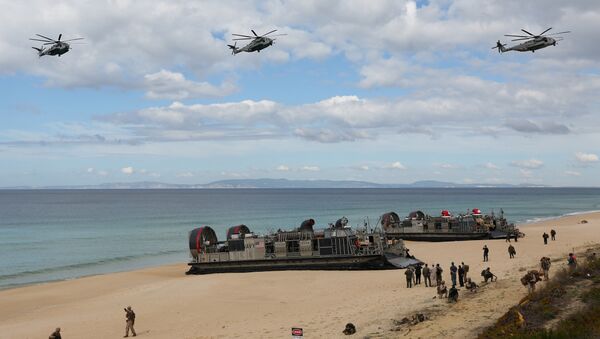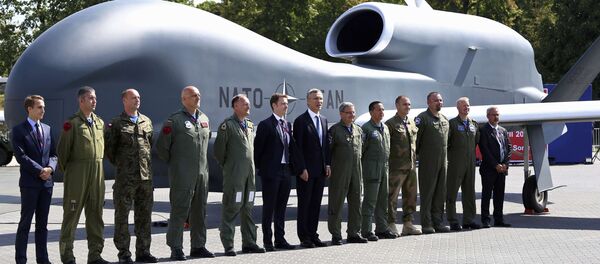"The new mission of NATO is, rhetorically at this summit, countering 'Russian aggression,'" Sleboda tells Loud & Clear host Brian Becker. "This is what the summit is all about. This is why Warsaw is a particular focus of this, and the whole raison d’etre that NATO has now shifted toward Russia."
During the summit, the alliance has finalized arrangements to increase the number of rotational troops in the Baltic and Poland, a move harshly criticized by Russia.
"'What we don’t need now is to enflame the situation by saber-rattling on the Polish border with Russia,'" McGovern says, quoting German Foreign Minister Frank-Walter Steinmeier, who has expressed opposition to the buildup.
"He [Steinmeier] goes on to say, 'Whoever believes that a symbolic tank parade on the alliance’s eastern border will bring security is mistaken. We are well-advised to not create [a] pretext to renew an old confrontation.'"
While relations between Moscow and Berlin appear to be thawing in the wake of talks between Russian President Vladimir Putin and German Chancellor Angela Merkel, Sleboda remains unconvinced, given Germany’s close ties with the United States, particularly regarding Syria.
"We have two security council resolutions calling for the eradication of Jabhat al-Nusra, al-Qaeda and all forces that are associated with it, and that would include [US President Barack] Obama’s proxies, at this point," Sleboda says.
"So I wouldn’t expect any cooperation. Both agree that they need to cooperate, but neither can agree on the terms for that. US terms would be for Russia abandoning Syrian President Assad and Russian terms would be for the US to abandon its efforts to overthrow the Syrian government by proxies."
McGovern nevertheless sees signs that the West’s unified stance against Russia is fracturing.
"I think the European people are starting to wake up and act like grownups," McGovern says. "After all, its 71 years since the war is over, and I see some cracks in the unity of the alliance."



